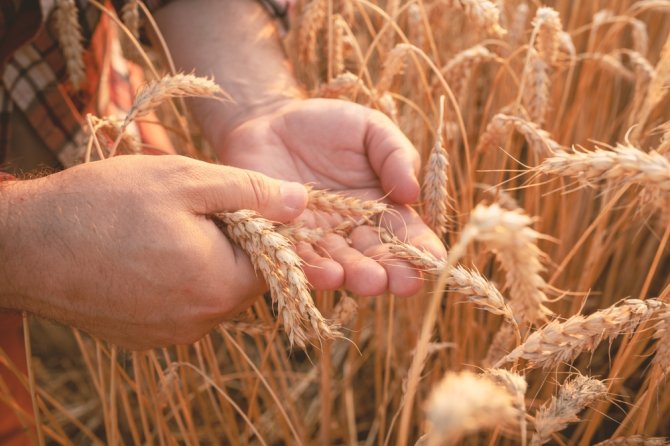
Project
WHEATBIOME
The WHEATBIOME project wants to unlock all the potential of wheat crops with strong collaboration between academia, industry, food system actors and governmental authorities. The project started in January 2023 and will last for 48 months, until December 2026. In 2020, wheat was the grain with largest acreage and the European Union was the world major producer of this important crop. That is why the project wants to release all of its potential.
Challenges of wheat
Wheat has been a key crop for human development thanks to its low growing requirements and because it’s considered as a well-known source of protein and energy. But food and crop production are facing several challenges nowadays, due to factors like demographic growth or climate change, among many others. Also, according to the European Commission, 65% of current European Union soils are expected to be damaged, which makes soil restoration a priority aligned both to the EU’s Green Deal and the Farm2Fork Strategy.
Therefore, sustainability in the food production and value chain is key, from many perspectives, including being able to feed an ever-growing number of people, maintaining soil and crops qualities, delivering healthy and nutritious products, protecting biodiversity and contributing to climate resilience of Europe.
While food sustainability is a major issue, there is an increased awareness among the European population for consuming healthy foods. The increase in the prevalence of non-communicable diseases is unquestionable and, moreover, the incidence of autoimmune-related disorders is also alarming. Among them, celiac disease in Europe affects up to 3% of the overall population while many cases remain undiagnosed. Thus, there is an urgent need to struggle for healthier and tastier food solutions providing proper nutritional quality aligned with low immunogenic potential and high organoleptic perception.
More research needed
Currently, 1 trillion different microbial species inhabit the Earth, from which soil and plant microbial communities are really important. Advancements on the discovery and characterization of novel microorganisms are necessary to identify novel microbiome-based products and processes, and to boost sustainable food systems. However, more studies and bio- characterization of soil and plant microbiomes are needed: only 1% of the bacteria in environmental habitats are subject of cultivation at the moment.

Goal of the WHEATBIOME project
The WHEATBIOME project will contribute to the understanding of the role of the wheat microbiome on healthier and sustainable development by undertaking cutting-edge research. With 2 case studies and a lab-scale demonstrator, the consortium will try to understand the effect of biotic/abiotic factors on wheat microbiomes and wheat global quality.
In addition, novel foods and feeds will be developed by learning about new fermentation capacities within indigenous wheat microbiomes.
Furthermore, WHEATBIOME will study the role of microbial fermentations in the quality of foods and feeds, considering the release of Celiac Disease-related peptides and bioactive compounds and recirculating wheat by-products with the goal of upcycling food waste. The interactions between wheat and animal or human microbiota will be determined and its health-related effects will be assessed. Also, sustainable farming practices for resilient and nutritious wheat crops will be delivered and perception of food system actors and citizens about microbiomes within food systems will be analysed.
Collaboration
WHEATBIOME is a 48-month Research Innovation Action funded by the Research Executive Agency (REA) under Grant Agreement nr. 101084344. It started in January 2023, is coordinated by REQUIMTE (Portugal) and counts on a consortium formed by 13 partners from 6 different European countries: Universidade do Porto (Portugal); Universidad de Vigo (Spain); Universitat de Valencia (Spain); Instytut Biotechnologii Przemyslu Rolno-Spozywczego IBPRS (Poland); Contactica S.L (Spain); Stichting Wageningen Research (The Netherlands); Szkola Glowna Gospodarstwa Wiejskiego (Poland); Universidade Nova de Lisboa (Portugal); Editorial Agricola Española SA (Spain); UAB ART21 (Lithuania); ISANATUR Spain SL (Spain); Allatorvostudomanyi Egyetem (Hungary).